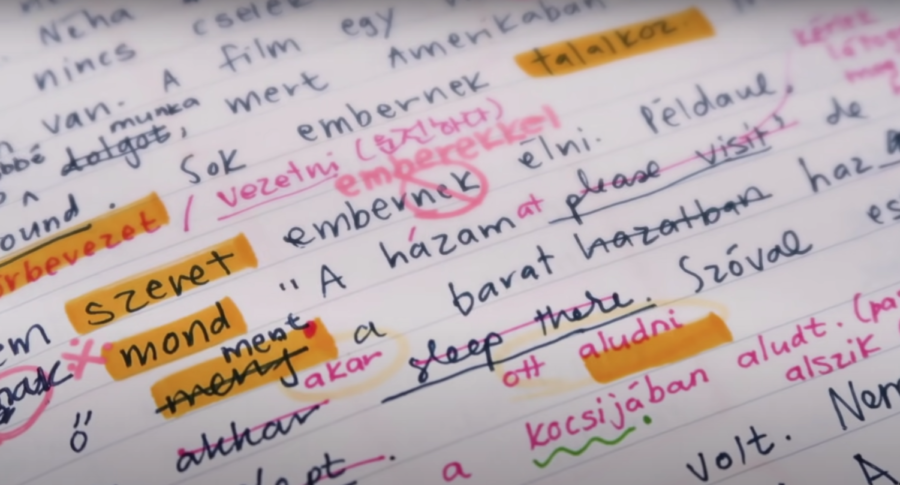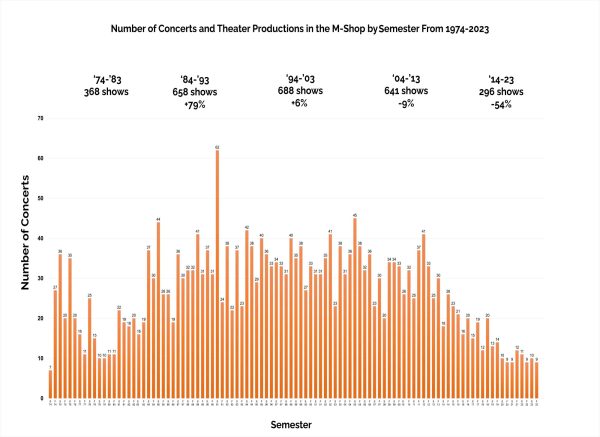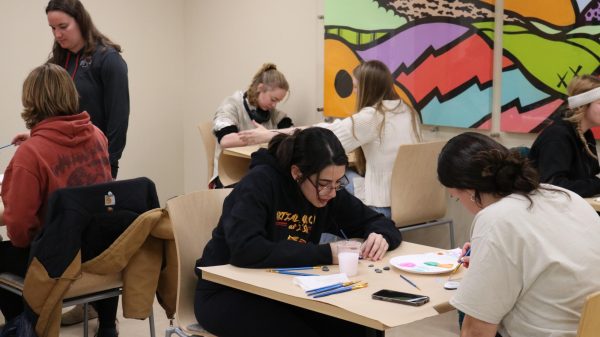Language apps can be most beneficial in early learning
Writing down a new language helps to learn it.
Diving into the realm of language learning can be overwhelming and discouraging. Nevertheless, learning a foreign language can be an enjoyable experience that leads to a better understanding of the world around you. Here are some ways to help you progress or start your language-learning journey.
Volker Hegelheimer, chair of the English department at Iowa State University, said learning a foreign language broadens your horizon for what’s out there in the world.
“I think to limit yourself to just one language is unnecessary, and if you have an open mindset or growth mindset of ‘hey, I want to learn more about the world,’” Hegelheimer said. “It’s good on so many levels, learning about another community and culture and other social structures.”
Where to begin
The correct way to get started is to get started.
Hegelheimer said there is no clear-cut correct way to begin learning. He said understanding what type of language learner you are is step one.
“There are some who really want to know the structure of the language first and want to know the grammar before they can plug in words,” Hegelheimer said. “Others want to be communicative and others don’t have a higher tolerance for ambiguity when it comes to speaking and making mistakes.”
If the goal is to achieve communicative competence, Hegelheimer recommends learning some vocabulary first.
“We want to be able to communicate, and doing that is a lot easier with vocabulary than it is with correct grammar,” Hegelheimer said. “If I tell you three words in English, you have an idea of what I’m talking about, whether or not they’re grammatically correct.”
Hegelheimer recommends learning the basics with a program such as Duolingo, which is free. After that, he recommends learning from authentic text from social media and news sites.
Language learning guide
Hegelheimer said the urge to communicate is a strong force. It is important to immerse and surround yourself with the language.
“You know, the best way to learn it is probably to go live in the country, where you have to have the motivation to survive and learn,” Hegelheimer said.
However, you do not have to live in your target language country to immerse yourself in a language. Immerse yourself actively and passively.
According to Leonardo English, passive language learning is absorbing and letting the information flow over you, while active language learning is taking control by putting your brain to work.
“Active is being able to produce it,” Hegelheimer said. “Passive is being able to understand it. Productive skills are speaking and writing, and receptive skills will be reading and listening. You need to practice all those skills to improve.”
Active learning activities may include creating flashcards for vocabulary and grammar, completing a grammar book, writing in a journal, video recording yourself speaking, transcribing audio and even thinking in your target language.
Hegelheimer explained that spaced repetition software (SRS) could be an effective tool that shows you new material you struggle with more often than the material you are better at in spaced intervals until it is in your long-term memory.
ANKI is a recommended free SRS where you can practice vocabulary and grammar in the context of self-created sentences.
Passive learning activities may include reading (without actively engaging), watching movies, TV and videos, and listening to podcasts and music.
Hegelheimer discussed that you could either watch a movie in the target language with English subtitles or vice versa.
How to progress
Motivation, consistency and persistence are the key factors to progress in learning a language.
“It’s like math,” Hegelheimer said. “It’s repetition, and things stick after you’ve done them a few times. It’s really that conscious effort of trying to practice something repeatedly.”
Hegelheimer said keeping that motivation throughout your language-learning journey is essential. He said the worst thing you can do is not pick it back up after taking a break.
“You just have to put your mind to it,” Hegelheimer said. “Work it into your schedule and don’t be bothered. I mean losing parts of what you’re learning is just — that’s just part of life. You just have to keep going so that you can refresh, rehearse and improve your language, so don’t give up.”
Your donation will support the student journalists of the Iowa State Daily. Your contribution will allow us to purchase equipment, send our student journalists to conferences and off-set their cost of living so they can continue to do best-in-the-nation work at the Iowa State Daily.












